
Al-Kadhimiya: The Spiritual Heart of Baghdad
Al-Kadhimiya, located in the heart of Baghdad, Iraq, is a neighborhood steeped in religious significance and historical grandeur. This vibrant quarter is home to the Al-Kadhimain Shrine, one of the most important religious sites for Shia Muslims. The shrine, with its glittering golden domes and intricate tile work, is the final resting place of the seventh and ninth Shia Imams, Imam Musa Al-Kadhim and Imam Muhammad Al-Jawad. Pilgrims and tourists alike are drawn to its serene courtyards and the palpable sense of spirituality that permeates the air. Beyond its religious landmarks, Al-Kadhimiya offers a glimpse into the rich cultural tapestry of Baghdad. The bustling Al-Kadhimiya Market is a sensory delight, with its array of stalls selling everything from traditional Iraqi sweets and spices to exquisite handicrafts and textiles. Wander through the labyrinthine alleys, and you'll find yourself immersed in the local way of life, where the aroma of freshly baked bread mingles with the sounds of vendors calling out their wares. For those interested in history, Al-Kadhimiya has much to offer. The neighborhood is dotted with historical buildings and sites that tell the story of Baghdad's storied past. From ancient mosques to charming cafes that have stood the test of time, every corner of Al-Kadhimiya has a story to tell. Whether you're here for a day or a week, this neighborhood promises a rich and unforgettable experience.
Local tips in Al-Kadhimiya
- Visit the Al-Kadhimain Shrine early in the morning to avoid the crowds and experience its serene atmosphere.
- Wear modest clothing when visiting religious sites to show respect for local customs.
- Take a guided tour to fully appreciate the historical significance of the neighborhood.
- Try local delicacies at the Al-Kadhimiya Market, especially the traditional Iraqi sweets.
- Keep an eye on your belongings in crowded market areas to avoid pickpocketing.
Al-Kadhimiya: The Spiritual Heart of Baghdad
Al-Kadhimiya, located in the heart of Baghdad, Iraq, is a neighborhood steeped in religious significance and historical grandeur. This vibrant quarter is home to the Al-Kadhimain Shrine, one of the most important religious sites for Shia Muslims. The shrine, with its glittering golden domes and intricate tile work, is the final resting place of the seventh and ninth Shia Imams, Imam Musa Al-Kadhim and Imam Muhammad Al-Jawad. Pilgrims and tourists alike are drawn to its serene courtyards and the palpable sense of spirituality that permeates the air. Beyond its religious landmarks, Al-Kadhimiya offers a glimpse into the rich cultural tapestry of Baghdad. The bustling Al-Kadhimiya Market is a sensory delight, with its array of stalls selling everything from traditional Iraqi sweets and spices to exquisite handicrafts and textiles. Wander through the labyrinthine alleys, and you'll find yourself immersed in the local way of life, where the aroma of freshly baked bread mingles with the sounds of vendors calling out their wares. For those interested in history, Al-Kadhimiya has much to offer. The neighborhood is dotted with historical buildings and sites that tell the story of Baghdad's storied past. From ancient mosques to charming cafes that have stood the test of time, every corner of Al-Kadhimiya has a story to tell. Whether you're here for a day or a week, this neighborhood promises a rich and unforgettable experience.
Iconic landmarks you can’t miss
Imam al-Kazim & Imam al-Jawad Shrine
Discover the spiritual heart of Baghdad at the Imam al-Kazim & Imam al-Jawad Shrine, a beacon of Islamic heritage and architectural splendor.
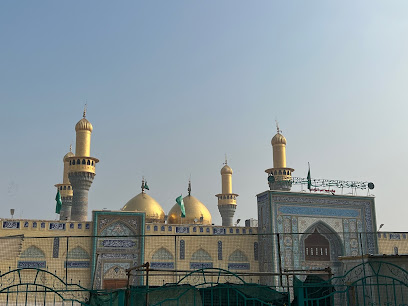
Imam al-Kāẓim & Imam al-Jawād Shrine
Discover the spiritual heart of Baghdad at the Imam al-Kāẓim & Imam al-Jawād Shrine, a beacon of Islamic architecture and profound cultural significance.
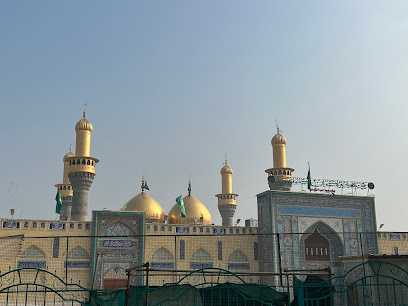
Martyr Monument
A poignant Baghdad landmark honoring Iraqi martyrs, featuring a split turquoise dome and serene memorial grounds.
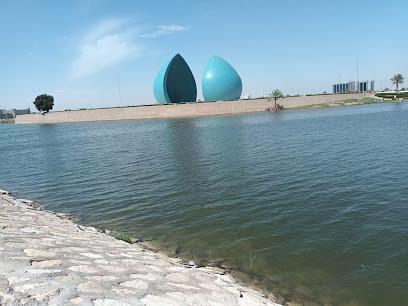
Abdul Mohsen Al-Kazemi Square
Escape the city bustle at Abdul Mohsen Al-Kazemi Square, a green haven in Baghdad's Kadhimiya, offering tranquility and cultural immersion.
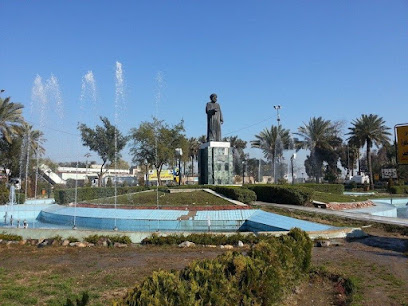
Tahrir Monument
Visit Baghdad's iconic Tahrir Monument, a symbol of Iraq's history, resilience, and the heart of its capital city.
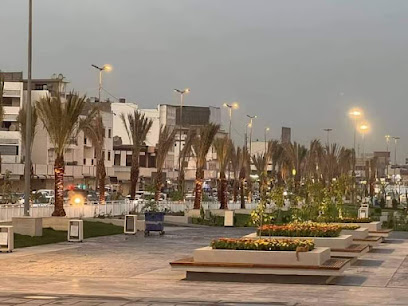
Kadhimiya Corniche
Enjoy a relaxing stroll along the Tigris River at Kadhimiya Corniche, a scenic waterfront park in Baghdad's historic Kadhimiya district.
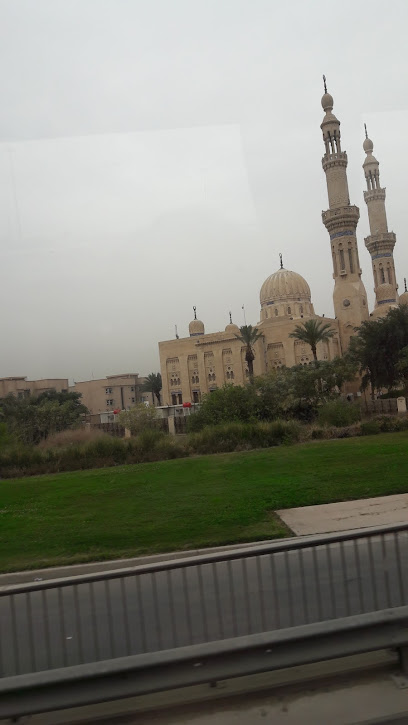
مُتَنَزّه ١٤ تموز
Escape to Baghdad's 14th of July Park in Kadhimiya for recreation, relaxation, and a touch of history.
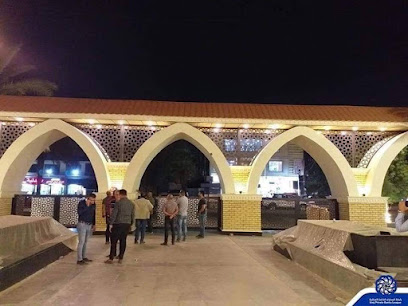
Kadhim Square
Escape the city bustle at Kadhim Square, a serene park in Baghdad offering green spaces, cultural events, and a peaceful retreat for all.
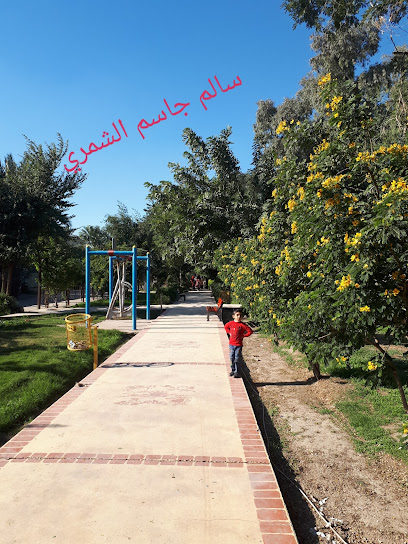
متحف رشيد عالي الكيلاني
Explore Iraqi heritage at the Rashid Ali al-Kilani Museum, a landmark showcasing the nation's history and culture in Baghdad.
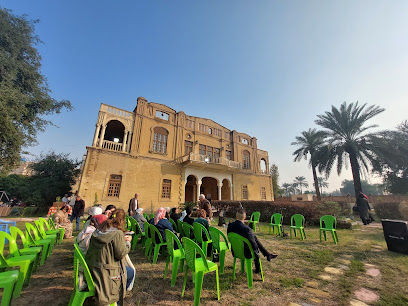
الاعظمية - المسنايا
Explore Al-Adhamiya: Baghdad's historic district, home to the Abu Hanifa Mosque and a vibrant cultural heritage.
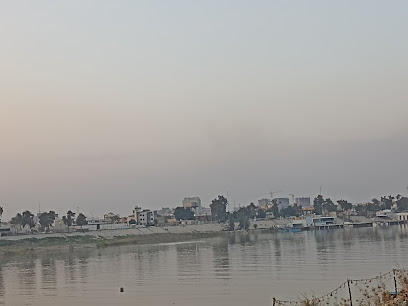
Al Kadhimain, Baghdad, Iraq
Discover Al-Kadhimiya Mosque in Baghdad: A sacred Shia shrine with stunning architecture, rich history, and deep spiritual significance.
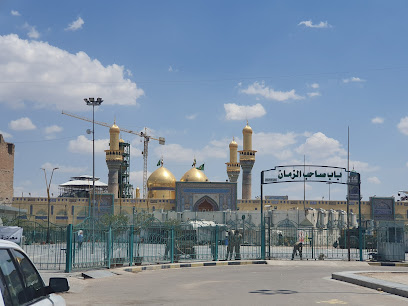
Remains of Talsam gate
Explore the historic Remains of Talsam Gate in Baghdad, a landmark echoing tales of ancient civilization and architectural brilliance.
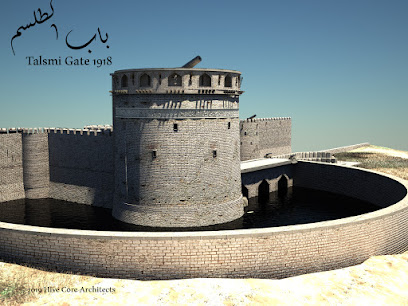
نصب الجرار
A six-meter-tall monument in Baghdad's Alawi district, created by Miran al-Saadi, symbolizing water's historical importance since 1962.
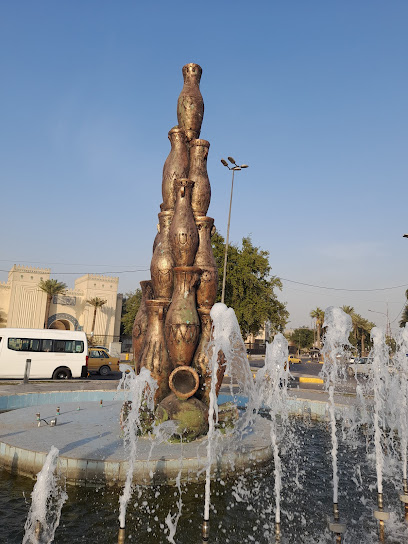
Al-Imma Square
Explore the vibrant Al-Imma Square in Kadhimiya, Baghdad, a cultural hub filled with local charm, stunning architecture, and rich history.
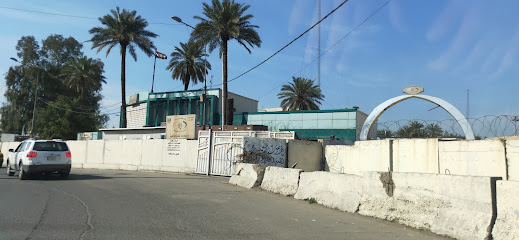
Oroba Square
Experience the vibrant heart of Baghdad at Oroba Square, where culture, community, and everyday life converge in Iraq's capital.
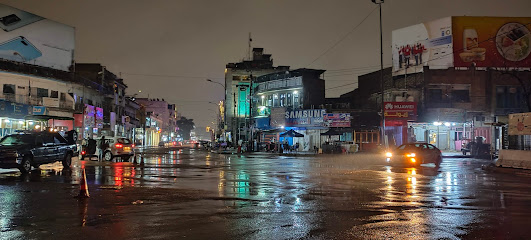
Unmissable attractions to see
Al-Zawraa Park
Escape to Baghdad's largest park: Al-Zawraa, a green haven with gardens, a zoo, and amusement rides for family fun.
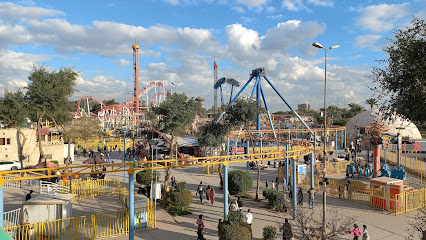
Imam al-Kāẓim & Imam al-Jawād Shrine
Discover the spiritual heart of Baghdad at the Imam al-Kāẓim & Imam al-Jawād Shrine, a beacon of Islamic architecture and heritage.
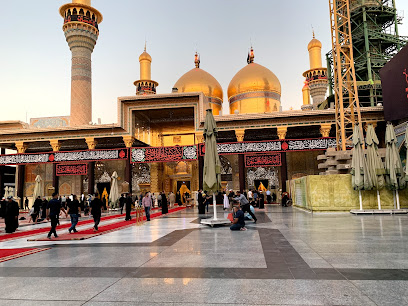
A Thousand and One Nights Park
Experience Baghdad's modern entertainment at A Thousand and One Nights Park, a riverside oasis blending recreation and cultural heritage.
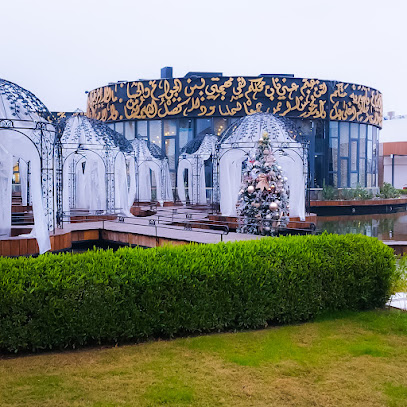
Baghdad Renaissance
Experience the vibrant spirit of Baghdad at the Renaissance, a cultural hub where history and modernity converge.
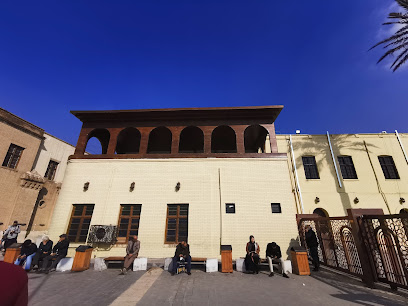
Abdul Mohsen Al-Kazemi Square
Experience tranquility in Baghdad at Abdul Mohsen Al-Kazemi Square, a cultural oasis with lush landscapes and vibrant community events.
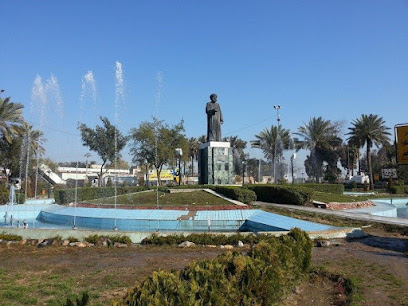
Kadhimiya Corniche
Escape to the serene Kadhimiya Corniche in Baghdad: a riverside park offering tranquility, cultural experiences, and stunning views of the Tigris.
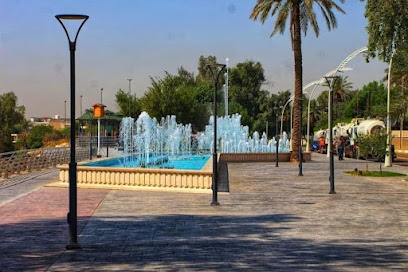
مُتَنَزّه ١٤ تموز
Escape to Baghdad's 14th of July Park: A green oasis offering relaxation, recreation, and scenic Tigris River views in the heart of the city.
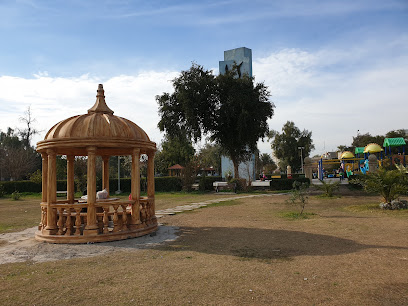
الاعظمية - المسنايا
Explore Al-Adhamiya in Baghdad: A historic district with cultural landmarks, the Abu Hanifa Mosque, and vibrant local life on the Tigris River.
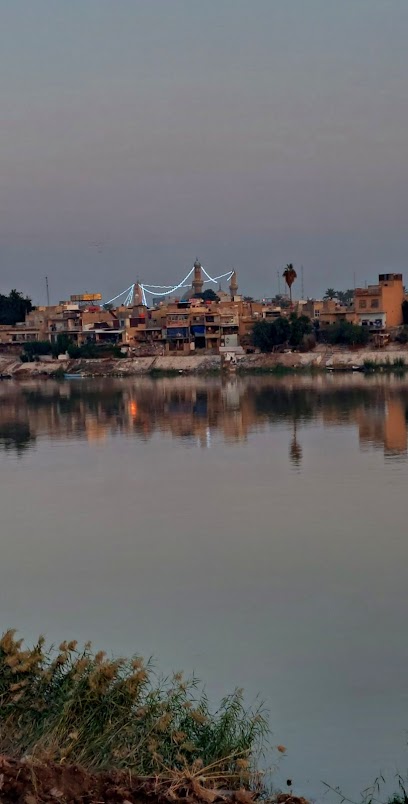
الف ليلة بارك
Escape to Alif Laila Park in Baghdad: A green oasis on the Tigris offering relaxation and recreation for families and tourists alike.
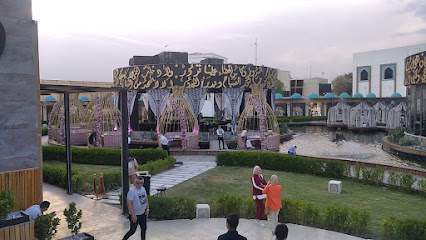
ضفاف دجلة من جهة الكاظمية
A peaceful escape along the Tigris in Baghdad's Kadhimiya, offering serene river views and a tranquil atmosphere steeped in history.
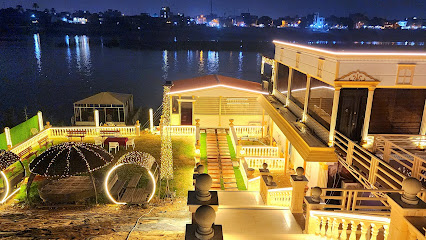
Essential places to dine
Amore pizza
Discover Amore Pizza: A delightful blend of authentic Iraqi flavors and Italian pizza traditions in the heart of Kadhimiya.
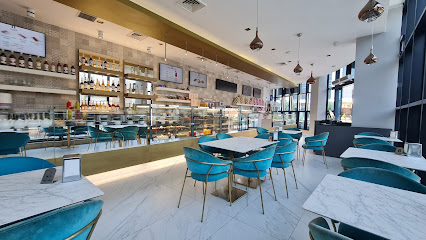
ﮔـص السلطان (عراقي ممتاز)
Savor the essence of Iraqi flavors at ﮔـص السلطان in Kadhimiya - an unforgettable culinary journey awaits.
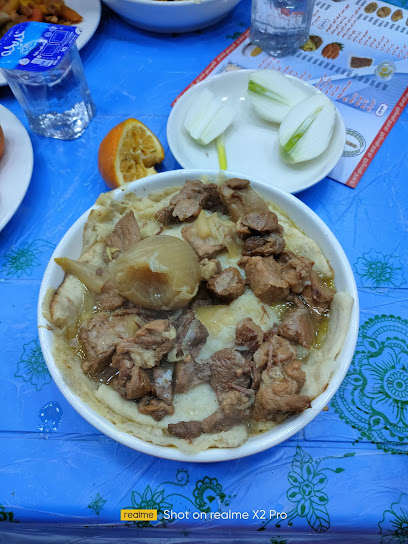
مطعم زمزم
Experience authentic Iraqi cuisine at مطعم زمزم in Baghdad's Kadhimiya neighborhood, where flavors meet tradition.
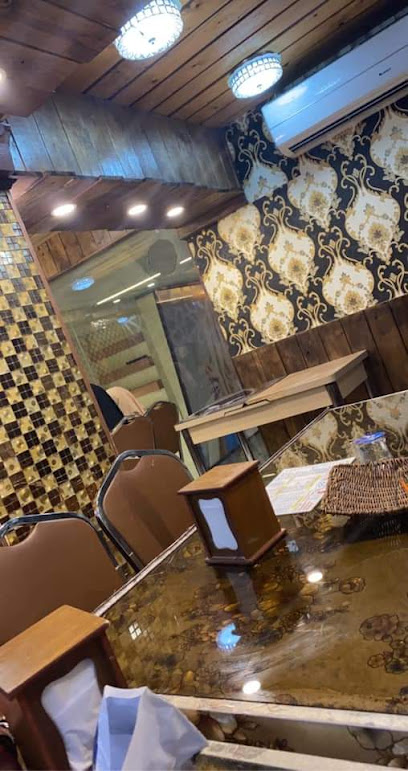
مطعم المضيف
Discover authentic Iraqi cuisine at مطعم المضيف in Baghdad - a culinary gem offering traditional dishes in a welcoming atmosphere.
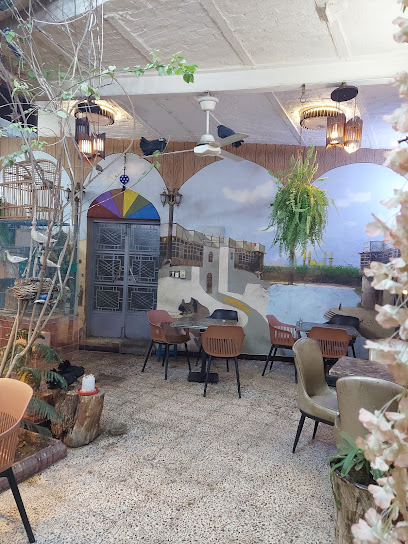
Hamid al-Tai Restaurant
Discover the heart of Iraqi cuisine at Hamid al-Tai Restaurant in Kadhimiya - where tradition meets flavor in every dish.

مطعم حيدر الصگيري
Experience authentic Iraqi flavors at مطعم حيدر الصگيري in Kadhimiya – where tradition meets taste in every dish.
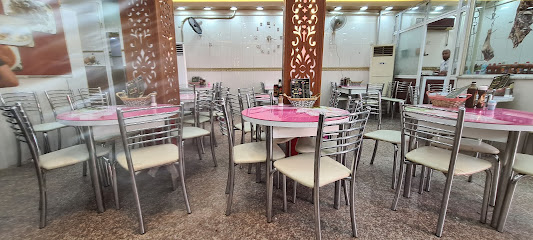
BBQ Burger
Experience delicious gourmet burgers and local flavors at BBQ Burger in Kadhimiya, Baghdad - A must-visit culinary destination.
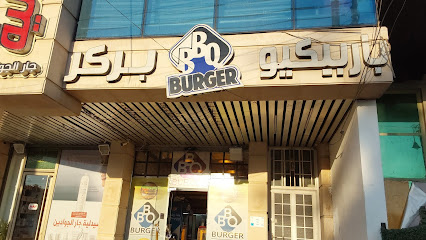
مطعم جار الجوادين
Experience authentic Iraqi cuisine at مطعم جار الجوادين in Kadhimiya, Baghdad - a hidden gem for food lovers.
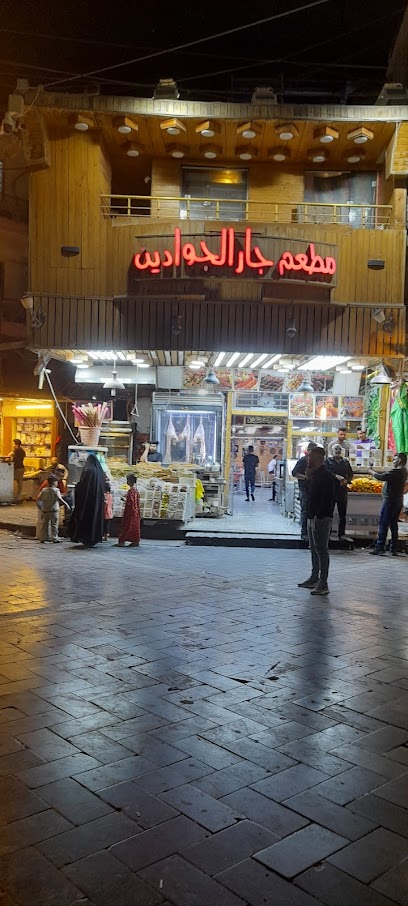
الركن الاخضر
Explore الركن الاخضر in Baghdad for an authentic fast food experience with delicious flavors and welcoming ambiance.
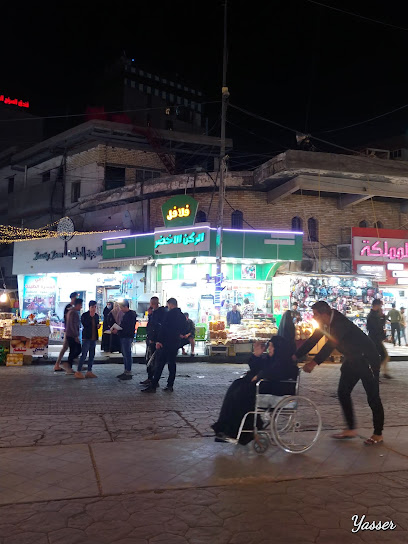
Dr. Food
Experience authentic Iraqi flavors at Dr. Food in Kadhimiya, Baghdad—where every meal tells a story.

Markets, malls and hidden boutiques
Mansour Mall
Discover Mansour Mall: Baghdad's ultimate shopping and entertainment destination, offering a mix of local charm and global brands.
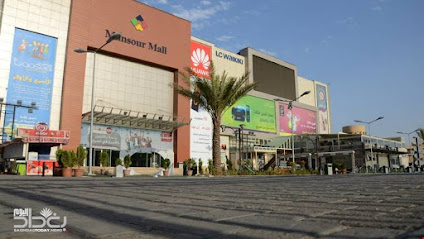
Baghdad Mall
Explore the vibrant Baghdad Mall, a premier shopping destination offering diverse stores, delightful dining, and entertainment in the heart of Iraq.
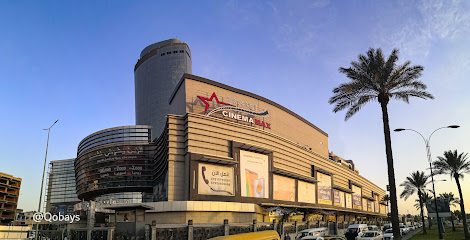
Babylon Mall
Experience shopping, dining, and entertainment like never before at Babylon Mall in Baghdad, a vibrant destination for tourists and locals alike.
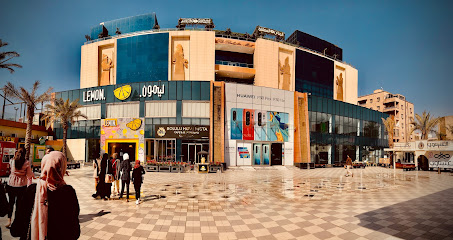
Bab al-Derwaza Market
Discover the charm of Bab al-Derwaza Market, Baghdad's bustling marketplace filled with local culture, crafts, and delicious food.
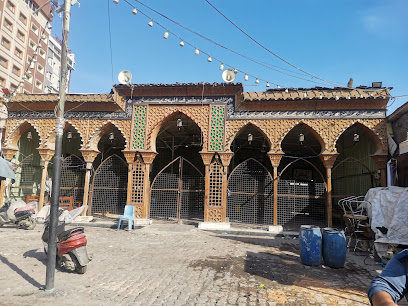
مول الكاظمية
Discover مول الكاظمية in Baghdad: A vibrant shopping destination blending local culture with modern retail experiences.
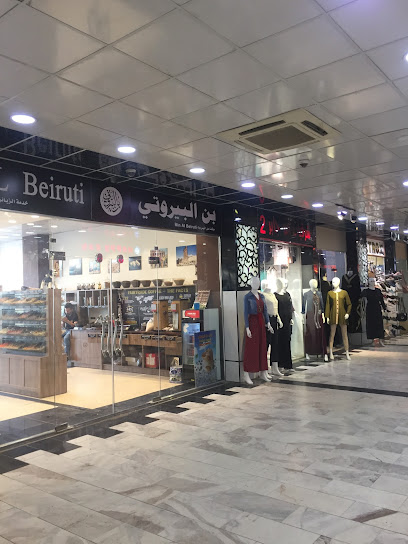
Gifts Village
Explore Gifts Village in Baghdad for unique souvenirs, handcrafted treasures, and a taste of authentic Iraqi culture.
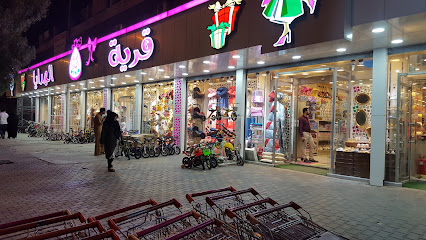
Iraqi Department Store
Explore the Iraqi Department Store for an authentic shopping experience in Baghdad, filled with local flavors and cultural treasures.
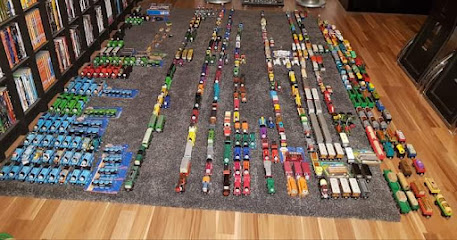
Kingdom gifts
Explore Kingdom Gifts in Baghdad for unique handcrafted treasures and a glimpse into local culture.

Alshahad Scarves
Discover the vibrant world of traditional Iraqi scarves at Alshahad Scarves, a must-visit clothing store in Baghdad's Kadhimiya district.
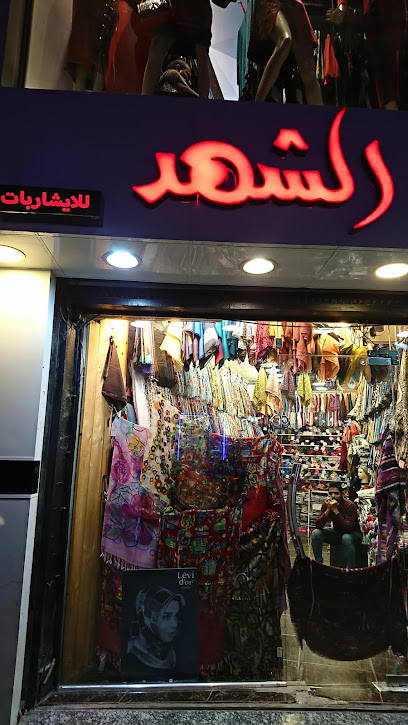
مطرزات لطيف_الكاظميه
Explore مطرزات لطيف_الكاظميه, where traditional Iraqi craftsmanship meets modern design in a stunning furniture store in Kadhimiya, Baghdad.

Essential bars & hidden hideouts
Irish pub
Discover the vibrant Irish pub in Baghdad, where local culture meets traditional Irish hospitality in a cozy atmosphere.
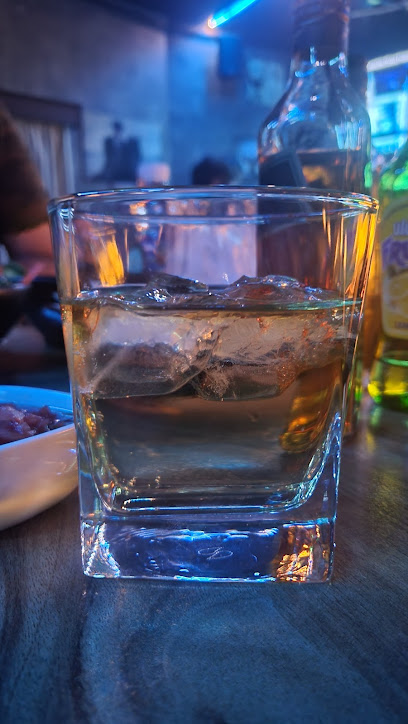
The Square meeting Bars
Experience the vibrant nightlife of Baghdad at The Square Meeting Bars, where drinks, culture, and friendships come together.
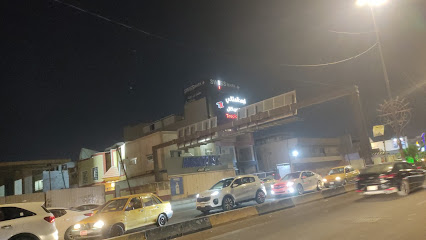
بار ابو التمن
Immerse yourself in the vibrant nightlife of Baghdad at بار ابو التمن, where locals and tourists come together to enjoy great drinks and lively atmosphere.
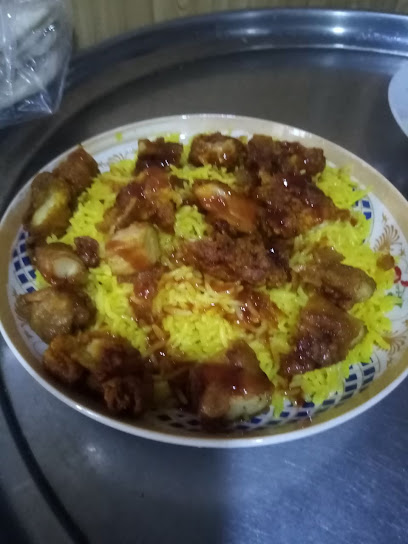
Liquor store
Explore the energetic bar culture of Baghdad, where tradition meets modernity in a vibrant nightlife experience.

بار نبيل درويش
Discover the lively ambiance of Bar Nabil Darwish in Kadhimiya, Baghdad—where traditional meets modern in a delightful bar experience.

مطعم وكوفي الميدليه والعطلات
Immerse yourself in Baghdad's vibrant culture at مطعم وكوفي الميدليه والعطلات, where delightful cuisine meets stunning views along the Corniche.

خان بياتي
Experience the vibrant nightlife of Baghdad at خان بياتي, where local culture meets modern entertainment in a lively bar setting.

مشروب
Experience the vibrant nightlife at مشروب in Baghdad, a bar where tradition meets modernity, perfect for socializing and enjoying local flavors.

مثلجات ستي ايس كريم
Discover the delectable world of مثلجات ستي ايس كريم, where every scoop of ice cream is a delightful treat in the heart of Baghdad.

وي
Discover the vibrant bar scene in Baghdad, where locals and tourists unite for unforgettable nights filled with culture, music, and delightful drinks.

Local Phrases
-
- Helloسلام
[salaam] - Goodbyeمع السلامة
[ma'a as-salama] - Yesنعم
[naam] - Noلا
[laa] - Please/You're welcomeمن فضلك
[min fadlak] - Thank youشكراً
[shukran] - Excuse me/Sorryعذراً
['udhran] - How are you?كيف حالك؟
[kayfa halak?] - Fine. And you?بخير. وأنت؟
[bikhayr. wa anta?] - Do you speak English?هل تتحدث الإنجليزية؟
[hal tatakallam al-ingliziyya?] - I don't understandأنا لا أفهم
[ana la afham]
- Helloسلام
-
- I'd like to see the menu, pleaseأريد أن أرى القائمة، من فضلك
[uridu an ara al-qa'imah, min fadlak] - I don't eat meatأنا لا آكل اللحم
[ana la aakul al-lahm] - Cheers!صحتين!
[sahhtayn] - I would like to pay, pleaseأريد أن أدفع، من فضلك
[uridu an adfa', min fadlak]
- I'd like to see the menu, pleaseأريد أن أرى القائمة، من فضلك
-
- Help!النجدة!
[al-najdah!] - Go away!انصرف!
[insarif!] - Call the Police!اتصل بالشرطة!
[itassil bialshurta!] - Call a doctor!اتصل بطبيب!
[itassil batabib!] - I'm lostأنا ضائع
[ana da'i] - I'm illأنا مريض
[ana mariid]
- Help!النجدة!
-
- I'd like to buy...أريد أن أشتري...
[uridu an ashtari...] - I'm just lookingأنا فقط أتفرج
[ana faqat atfarruj] - How much is it?كم سعره؟
[kam si'ruh?] - That's too expensiveهذا غالي جداً
[hatha ghali jiddan] - Can you lower the price?هل يمكنك خفض السعر؟
[hal yumkinuka khafd al-si'ur?]
- I'd like to buy...أريد أن أشتري...
-
- What time is it?كم الساعة؟
[kam al-sa'ah?] - It's one o'clockالساعة الواحدة
[al-sa'ah al-wahidah] - Half past (10)الساعة العاشرة والنصف
[al-sa'ah al-'ashirah wal-nisf] - Morningالصباح
[al-subah] - Afternoonالظهر
[al-dhuhur] - Eveningالمساء
[al-masa'] - Yesterdayأمس
[ams] - Todayاليوم
[al-yawm] - Tomorrowغداً
[ghadan] - 1واحد
[wahid] - 2اثنان
[ithnan] - 3ثلاثة
[thalathah] - 4أربعة
[arba'ah] - 5خمسة
[khamsah] - 6ستة
[sittah] - 7سبعة
[sab'ah] - 8ثمانية
[thamaniah] - 9تسعة
[tis'ah] - 10عشرة
['asharah]
- What time is it?كم الساعة؟
-
- Where's a/the...?أين...؟
[ayn...?] - What's the address?ما هو العنوان؟
[ma huwa al-unwan?] - Can you show me (on the map)?هل يمكنك أن تريني (على الخريطة)؟
[hal yumkinuka an tarini (ala al-khariṭah)?] - When's the next (bus)?متى يأتي الحافلة التالية؟
[mata ya'ti al-hafilah al-taliyah?] - A ticket (to ....)تذكرة (إلى ...)
[tadhkirat (ila ...)]
- Where's a/the...?أين...؟
History of Al-Kadhimiya
-
Al-Kadhimiya, named after the revered Shia Imam Musa al-Kadhim, emerged as a significant religious site in the 8th century. The neighborhood became a pilgrimage destination after the construction of the Imam's shrine, which drew visitors from across the Islamic world. This spiritual significance has shaped the cultural identity of the area, marking it as a center of Shia Islam.
-
During the Abbasid Caliphate (750-1258), Baghdad, including Al-Kadhimiya, thrived as a hub of knowledge, culture, and commerce. The establishment of the House of Wisdom attracted scholars, poets, and scientists, making the city a beacon of learning. Al-Kadhimiya played a role in this cultural renaissance, with its religious institutions contributing to theological and philosophical discourse.
-
Under Ottoman rule from the 16th century until World War I, Al-Kadhimiya continued to develop as a religious and cultural center. The Ottomans expanded the Imam al-Kadhim shrine and constructed ornate structures around it, enhancing its significance. This period saw an influx of pilgrims, which helped the local economy and solidified Al-Kadhimiya's status within Baghdad.
-
The 20th century brought significant political and social changes to Baghdad, including Al-Kadhimiya. The rise of nationalism and later conflicts led to increased sectarian tensions, impacting the neighborhood's dynamics. Despite challenges, Al-Kadhimiya remained a vital center for Shia Islam, with its historic sites continuing to attract worshippers and tourists alike.
-
In the wake of the Iraq War and subsequent conflicts, Al-Kadhimiya faced challenges, including violence and economic strain. However, the community's resilience has been evident through efforts to rebuild and restore its cultural heritage. The neighborhood continues to hold annual religious observances, such as Ashura, which draws large crowds, showcasing its enduring significance in the region.
Al-Kadhimiya Essentials
-
Al-Kadhimiya is located in the northwest part of Baghdad and is accessible from other neighborhoods via various modes of transport. Taxis are the most common way to reach Al-Kadhimiya, and they can be hailed from anywhere in the city. If you are coming from downtown Baghdad, expect a journey of about 20-30 minutes, depending on traffic. Public buses also serve the route, though they may be less reliable. Ensure you have a local guide or a trusted driver for ease of navigation.
-
Al-Kadhimiya is relatively small, and walking is a great way to explore its streets and attractions. Local taxis are available for longer distances or if you're visiting multiple sites. There are no formal public transport systems like trains, but shared taxis are common and can be flagged down. Bicycles are not commonly used, and it is advisable to prioritize safety by using taxis or walking.
-
While Al-Kadhimiya is generally safe for tourists, it is essential to remain vigilant. Avoid wandering into less populated areas, particularly at night. Petty crime can occur, so keep an eye on your belongings. Areas near the outskirts of Al-Kadhimiya may be less secure, so it's best to explore with a guide or local friend who knows the area well.
-
In case of an emergency, dial 115 for police assistance and 122 for ambulance services in Iraq. Familiarize yourself with the location of the nearest hospital upon arrival. It is advisable to have travel insurance that covers health emergencies. Carrying a local SIM card can be helpful for quick communication in emergencies.
-
Fashion: Do dress modestly; men should wear long trousers and shirts with sleeves, while women should wear loose-fitting clothing covering arms and legs. Avoid shorts and tight-fitting garments. Religion: Do be respectful in religious sites; women should cover their hair when entering mosques. Public Transport: Do be polite and allow locals to board first; don’t engage in loud conversations. Greetings: Do greet with a smile and a handshake; don’t assume familiarity too quickly. Eating & Drinking: Do try local dishes, especially during Ramadan; don’t eat or drink in public during daylight hours in Ramadan.
-
To experience Al-Kadhimiya like a local, visit the famed Al-Kadhimayn Mosque, a significant religious site, and learn about its history through local guides. Try the traditional Iraqi dish 'Masgouf' at local eateries. For unique souvenirs, explore local markets and engage with vendors. Participate in local festivities if available, as they provide insight into the rich culture of the area.
Trending Landmarks in Al-Kadhimiya
-
Imam al-Kazim & Imam al-Jawad Shrine
-
Imam al-Kāẓim & Imam al-Jawād Shrine
-
Martyr Monument
-
Abdul Mohsen Al-Kazemi Square
-
Tahrir Monument
-
Kadhimiya Corniche
-
مُتَنَزّه ١٤ تموز
-
Kadhim Square
-
متحف رشيد عالي الكيلاني
-
الاعظمية - المسنايا
-
Al Kadhimain, Baghdad, Iraq
-
Remains of Talsam gate
-
نصب الجرار
-
Al-Imma Square
-
Oroba Square
Nearby Cities to Al-Kadhimiya
-
Things To Do in Karbala
-
Things To Do in Najaf
-
Things To Do in Kirkuk
-
Things To Do in Sulaymaniyah
-
Things To Do in Amara
-
Things To Do in Erbil
-
Things To Do in Mosul
-
Things To Do in Dohuk
-
Things To Do in Arar
-
Things To Do in Basra
-
Things To Do in Jahra
-
Things To Do in Sakakah
-
Things To Do in Kuwait City
-
Things To Do in Hawalli
-
Things To Do in Farwaniya







